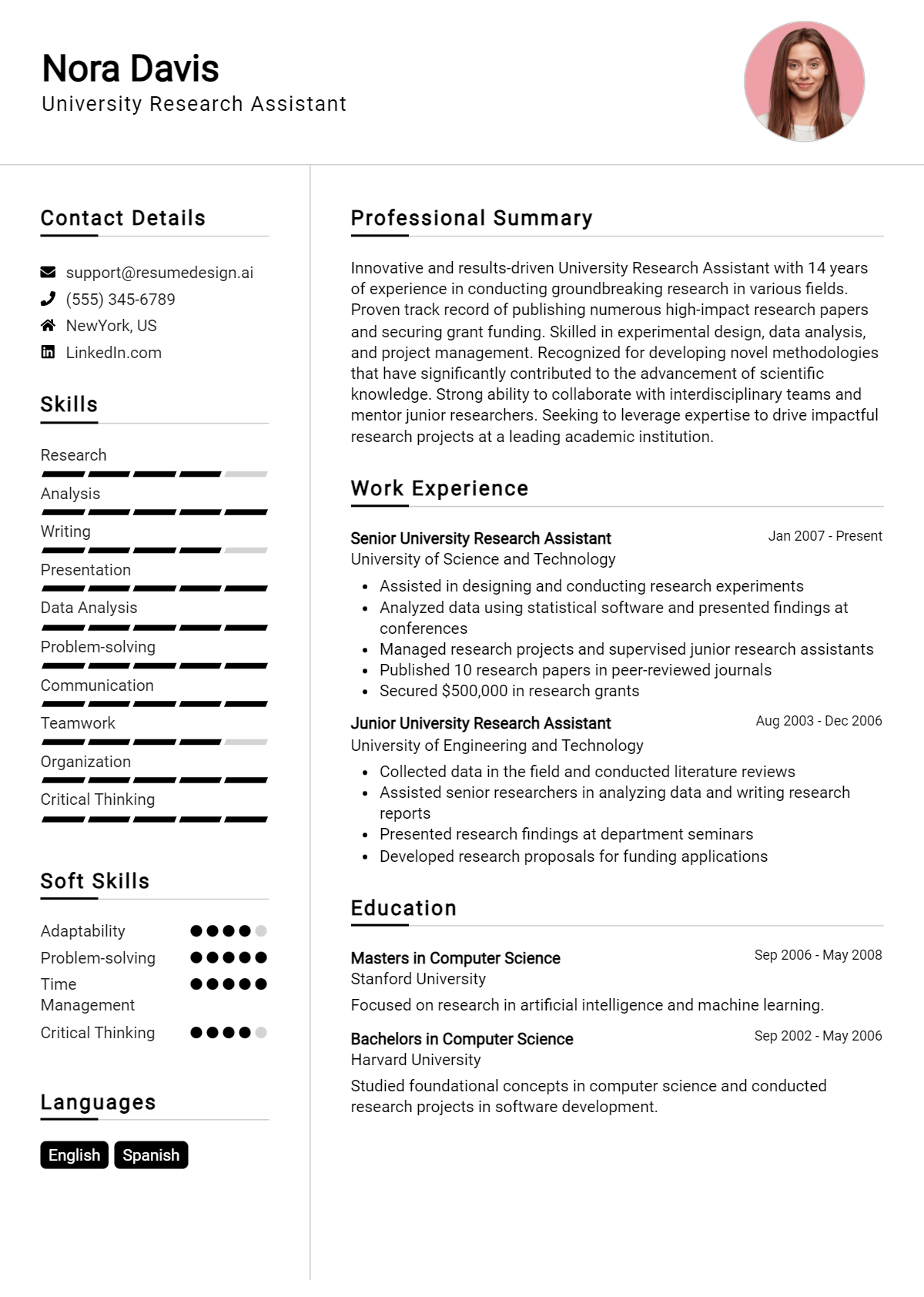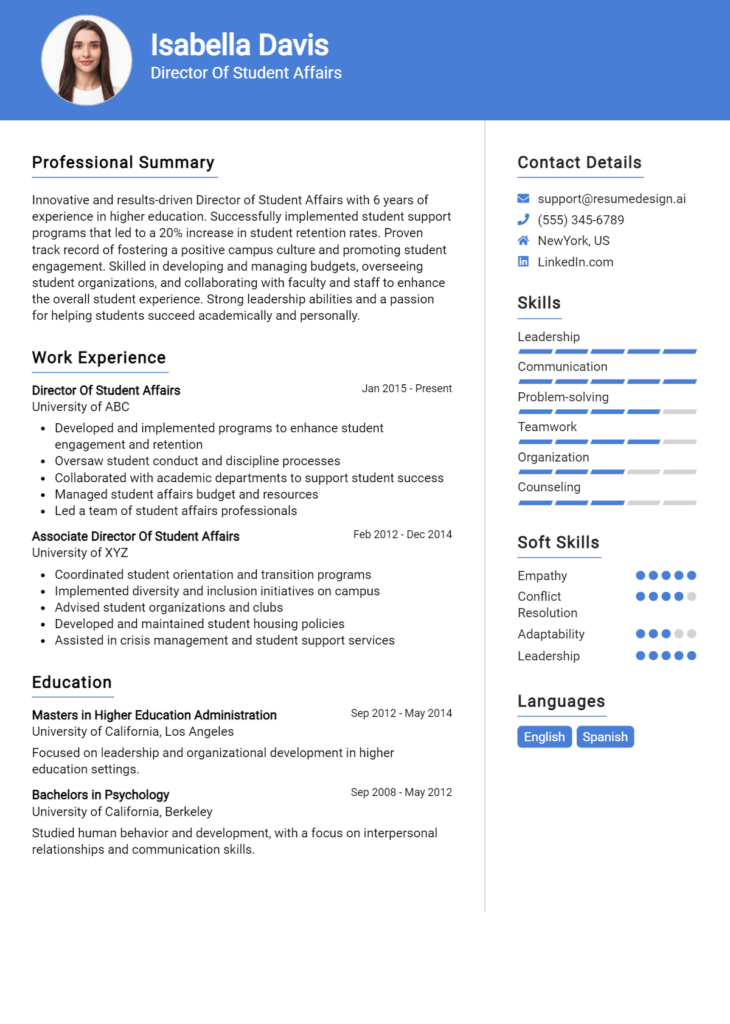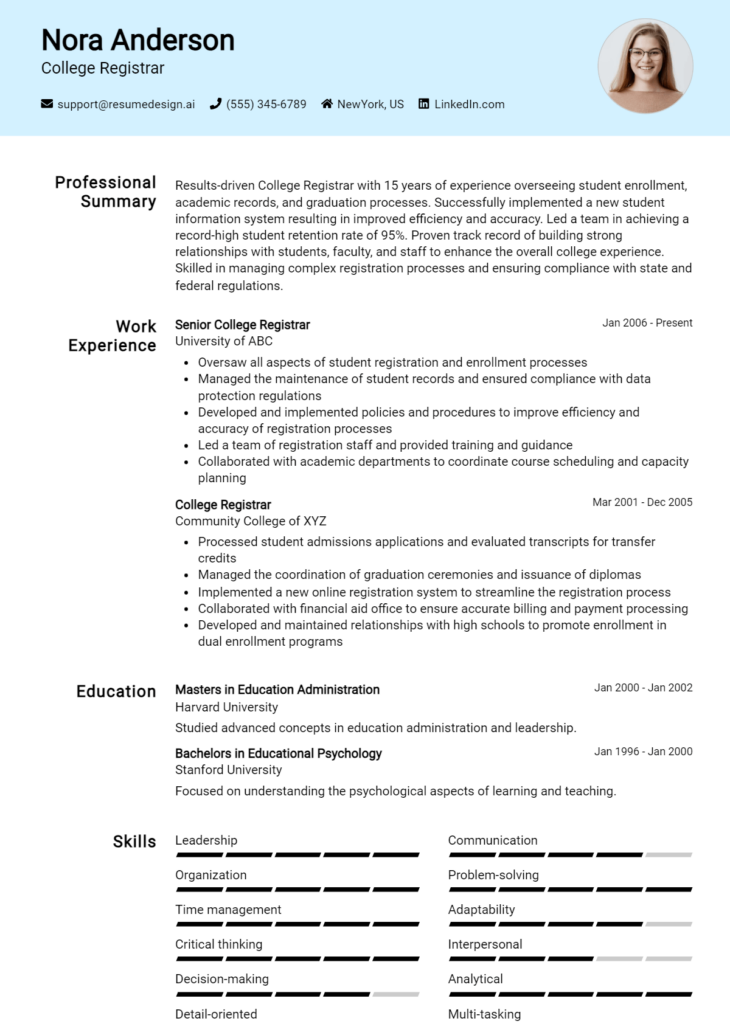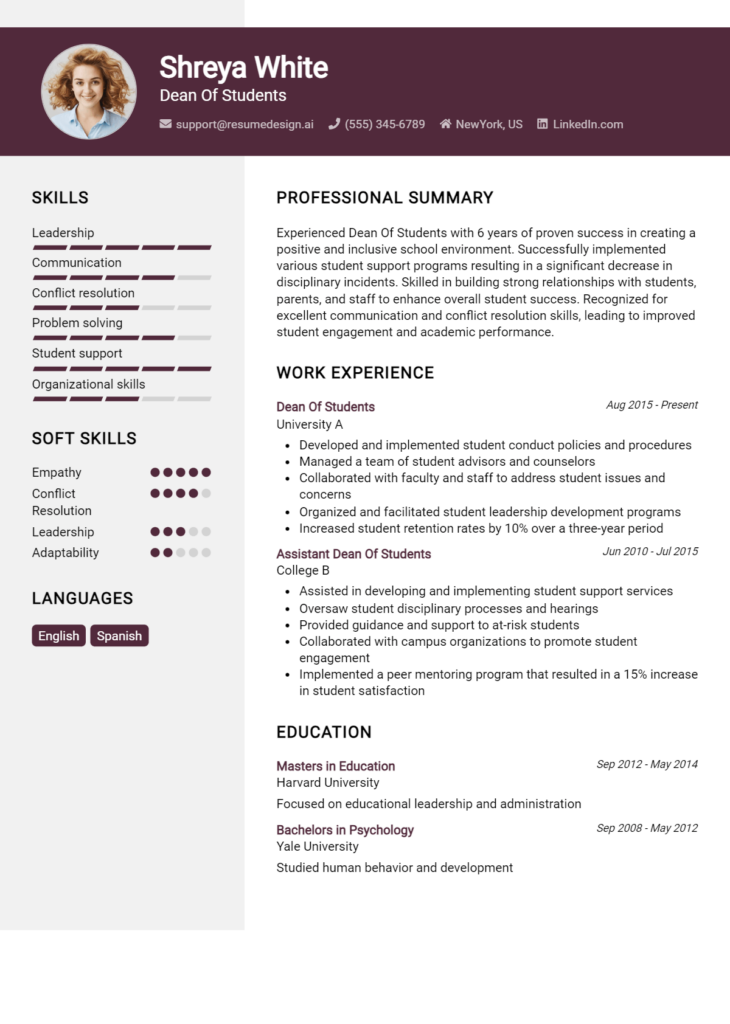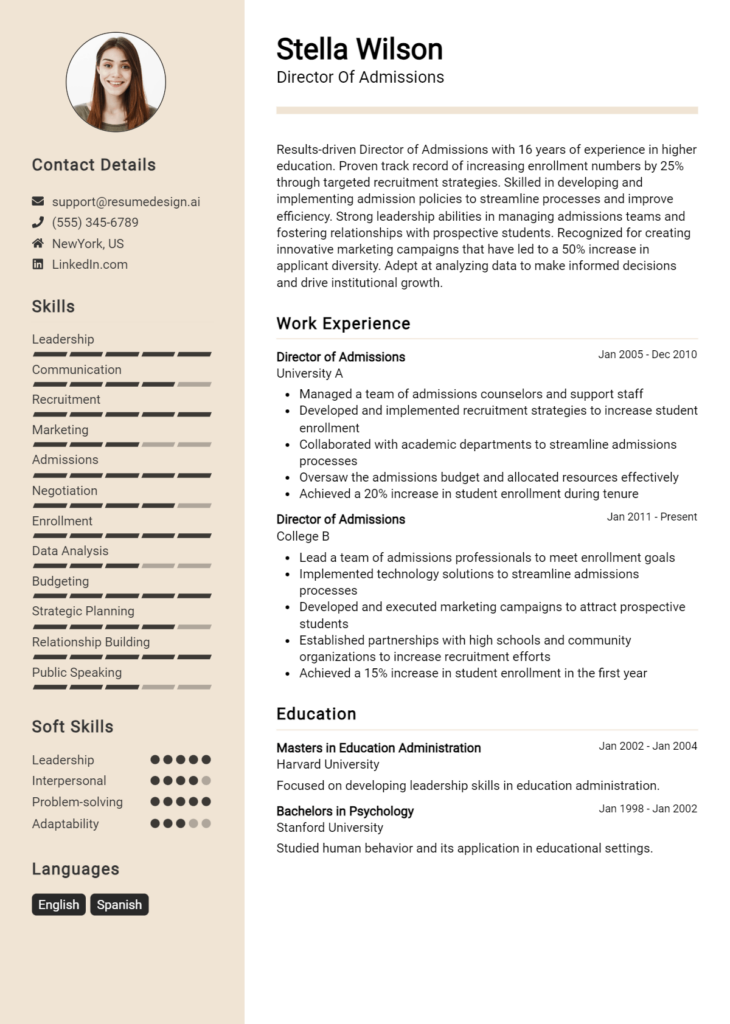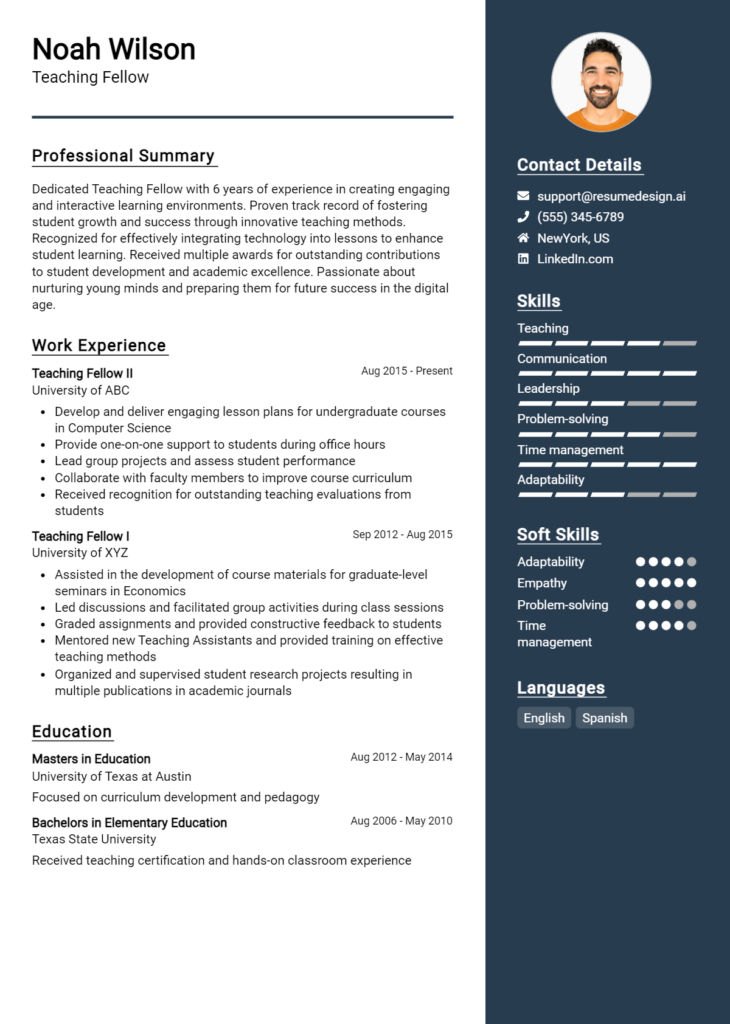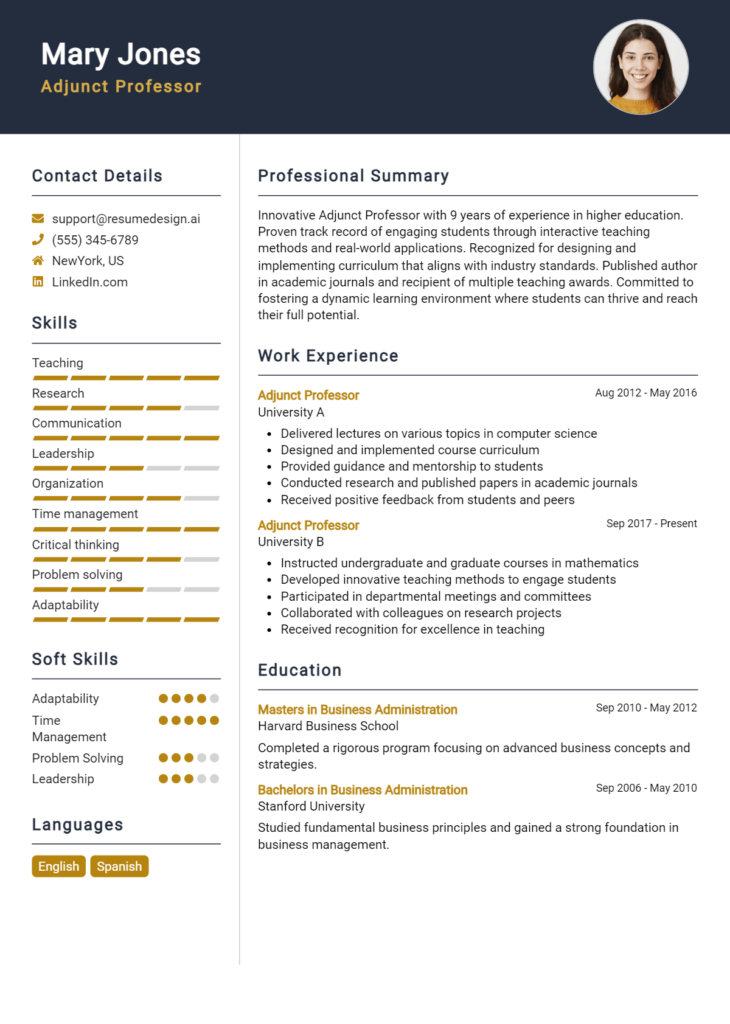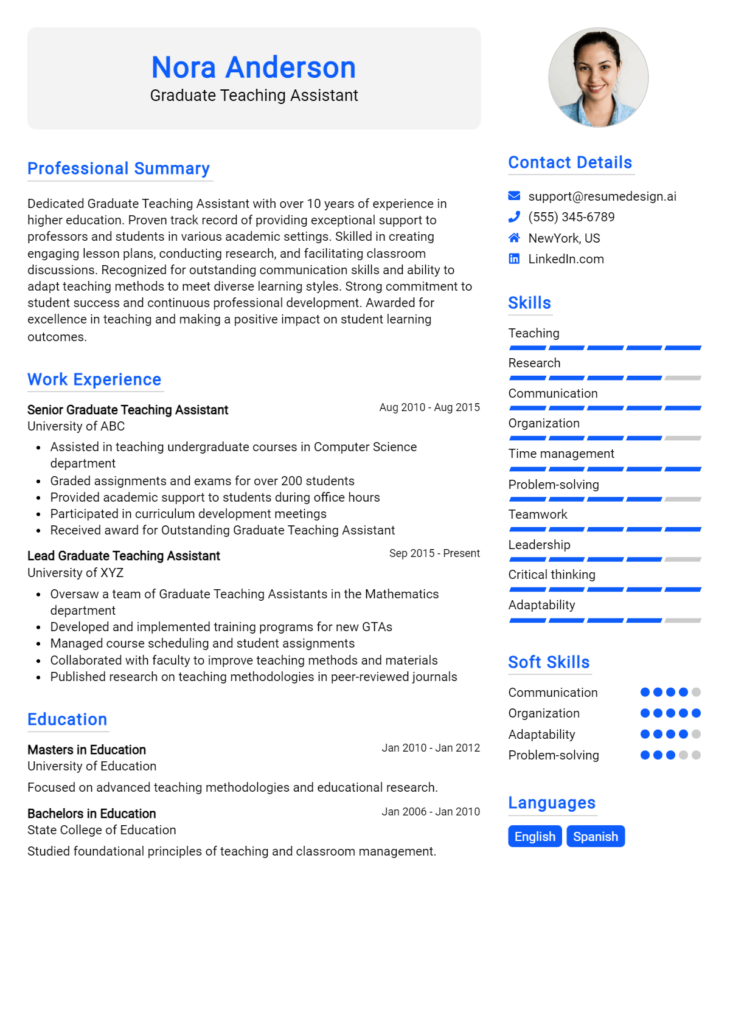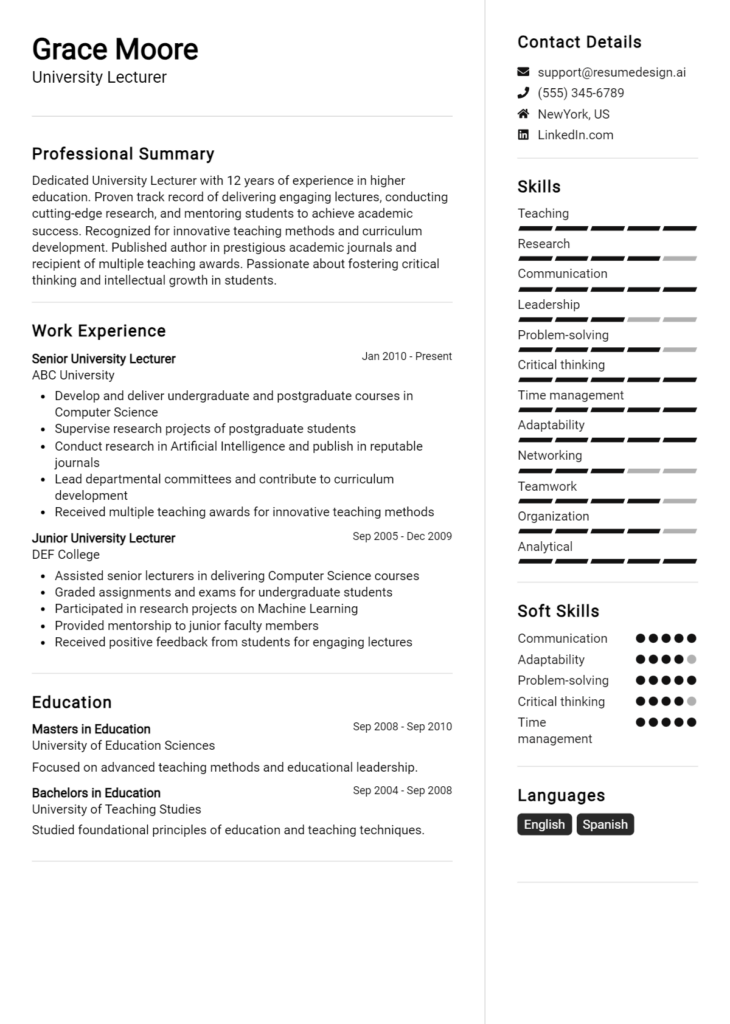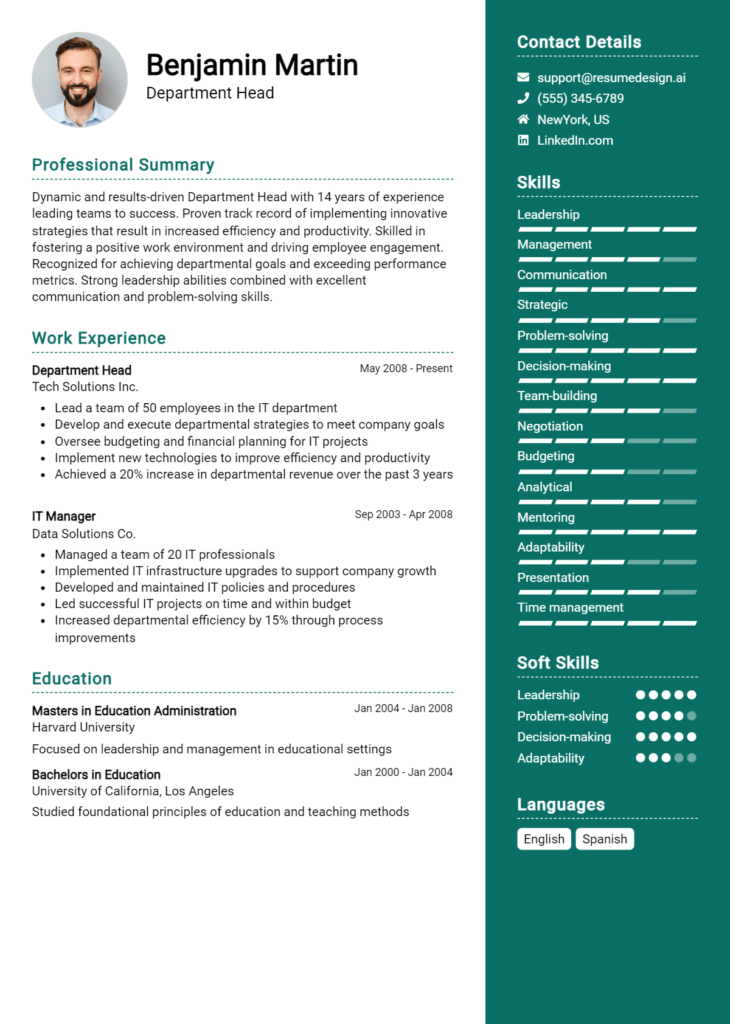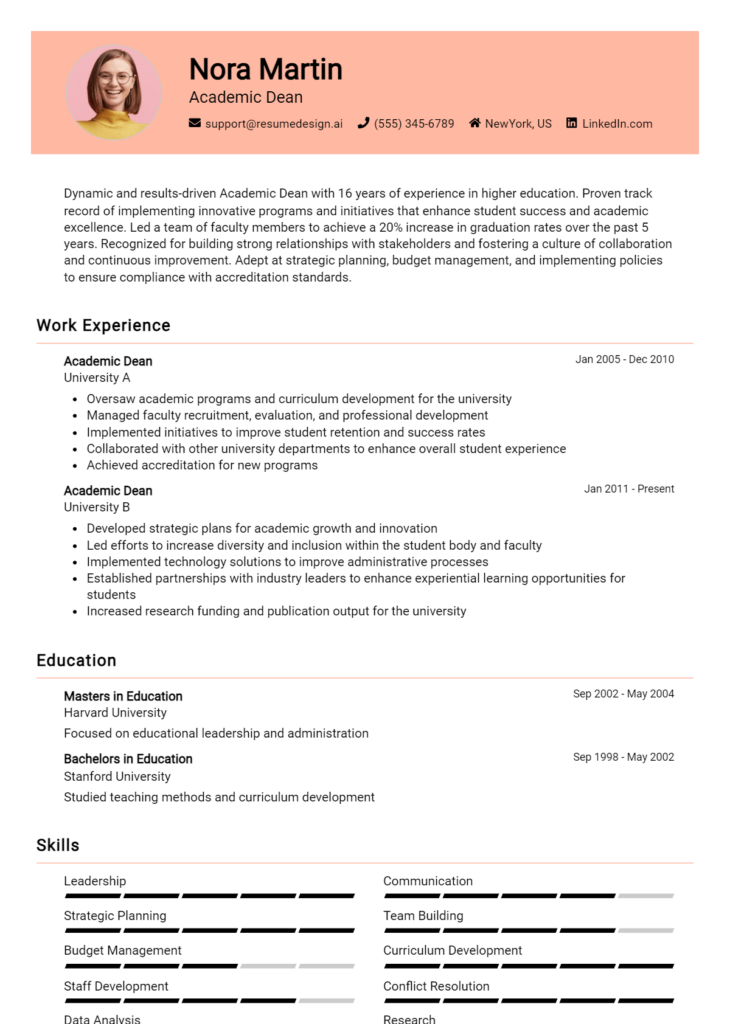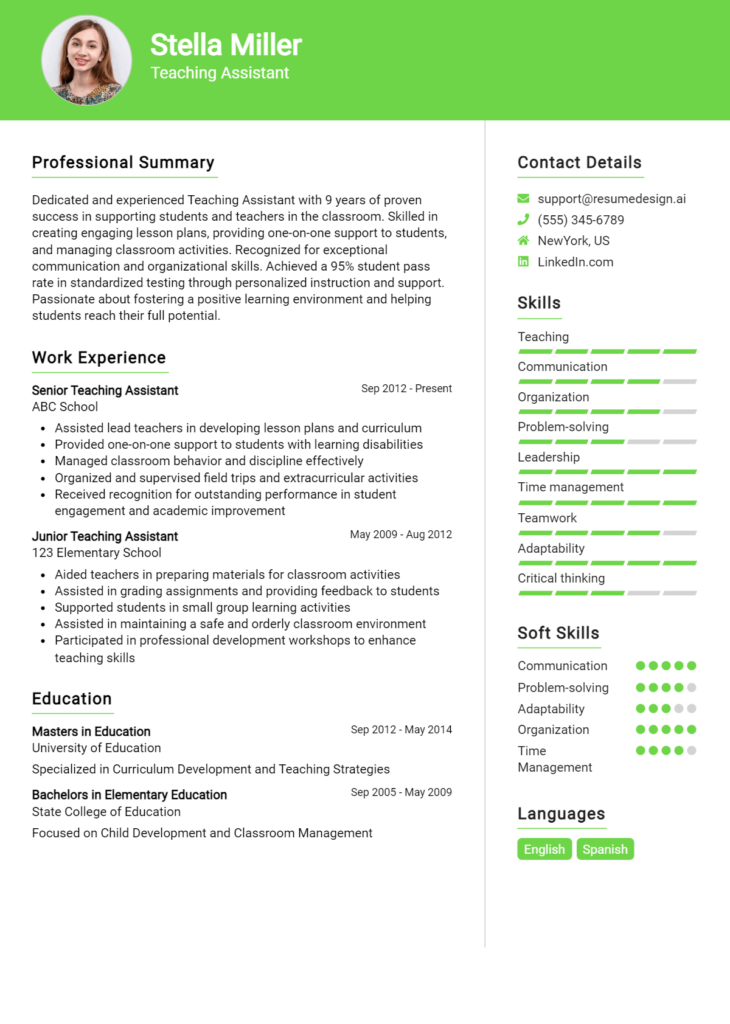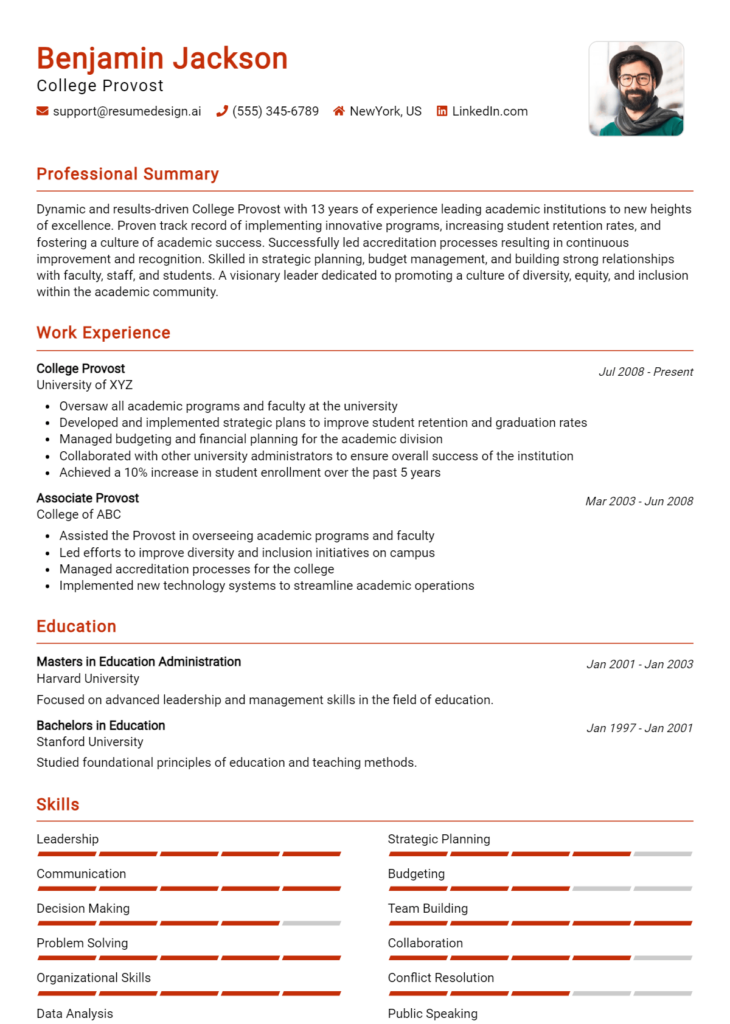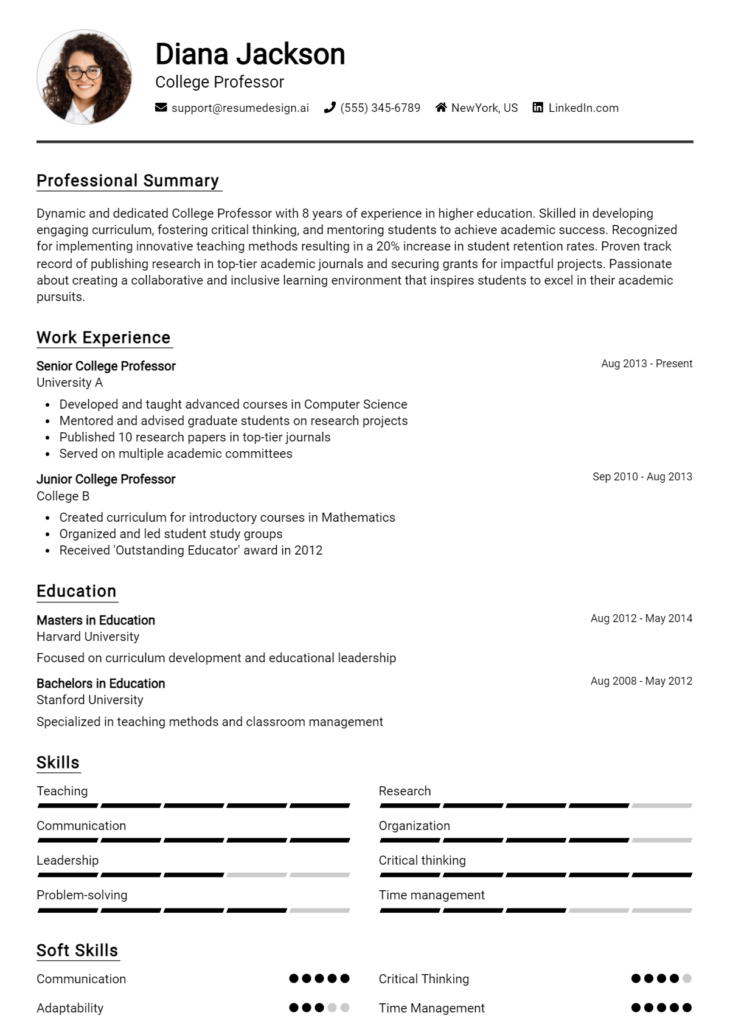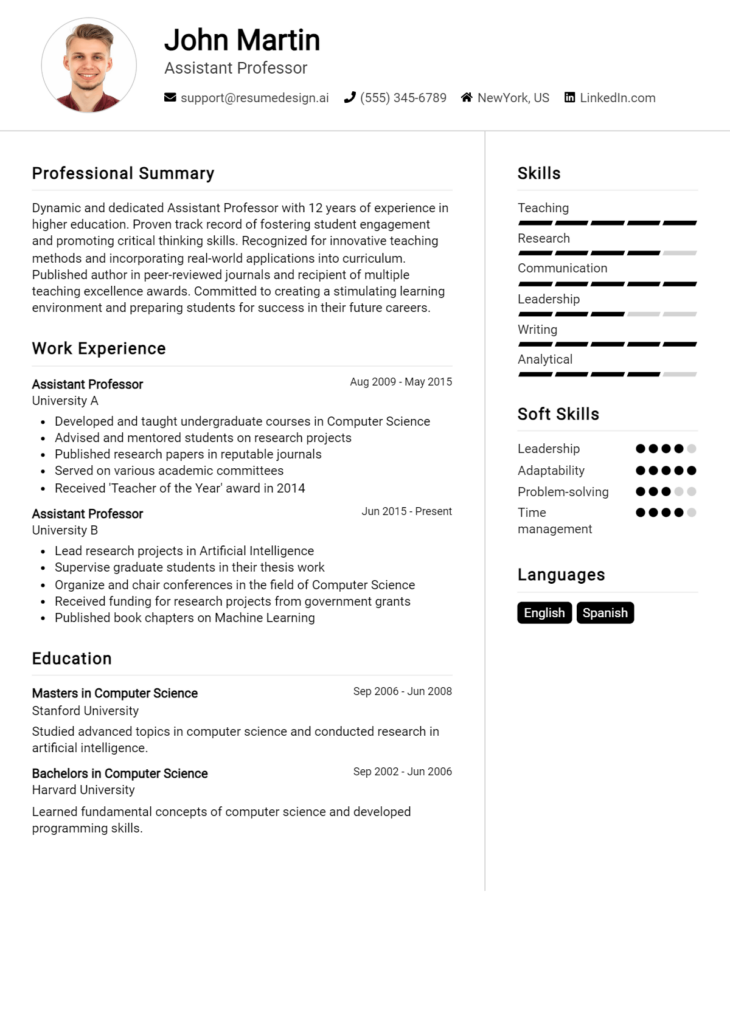University Research Assistant Core Responsibilities
A University Research Assistant plays a pivotal role in facilitating collaboration across various departments, supporting research projects through a blend of technical expertise and operational efficiency. Key responsibilities include conducting literature reviews, collecting and analyzing data, and assisting in the preparation of reports and presentations. Critical problem-solving skills are essential for addressing research challenges, while effective communication ensures seamless interaction between faculty and students. A well-structured resume showcasing these competencies can significantly enhance job prospects and convey the candidate's potential contributions to the organization’s research goals.
Common Responsibilities Listed on University Research Assistant Resume
- Conducting literature reviews and summarizing findings.
- Assisting in data collection and management.
- Performing statistical analysis and interpretation of data.
- Preparing research reports, presentations, and publications.
- Coordinating research activities among team members.
- Maintaining laboratory equipment and ensuring compliance with safety protocols.
- Participating in meetings and contributing to project discussions.
- Managing project timelines and assisting with grant applications.
- Training and mentoring undergraduate students in research techniques.
- Utilizing software tools for data visualization and analysis.
- Documenting research processes and maintaining accurate records.
Why Resume Headlines & Titles are Important for University Research Assistant
In the competitive landscape of academic research, a University Research Assistant plays a pivotal role in supporting professors and researchers through various tasks, such as conducting experiments, analyzing data, and preparing reports. To stand out in this field, a well-crafted resume headline or title is essential. A strong headline can instantly grab the attention of hiring managers by summarizing a candidate's key qualifications in one impactful phrase. It serves as a concise, relevant, and direct reflection of the applicant's fit for the position, making it crucial for conveying their strengths and experience at first glance.
Best Practices for Crafting Resume Headlines for University Research Assistant
- Keep it concise: Aim for one impactful phrase that summarizes your qualifications.
- Be role-specific: Tailor the headline to reflect the specific position of University Research Assistant.
- Highlight key skills: Incorporate relevant skills or experiences that align with the job description.
- Use action verbs: Start with strong action verbs to convey a sense of initiative and capability.
- Quantify achievements: Where possible, include metrics or results to demonstrate your impact.
- Avoid jargon: Use clear language that hiring managers can easily understand.
- Stay relevant: Focus on aspects that are directly related to the research assistant role.
- Make it attention-grabbing: Use compelling phrases that stand out and provoke interest.
Example Resume Headlines for University Research Assistant
Strong Resume Headlines
"Data-Driven University Research Assistant with 3 Years of Experience in Quantitative Analysis"
“Dedicated Research Assistant Skilled in Statistical Software and Experimental Design”
“Proficient in Laboratory Techniques and Research Methodologies with a Focus on Biological Sciences”
Weak Resume Headlines
“Looking for a Job”
“Research Assistant”
The strong resume headlines are effective because they provide specific insights into the candidate's qualifications and experience while using engaging language that captures attention. They highlight relevant skills and accomplishments, making it easier for hiring managers to see the candidate's potential fit for the role. In contrast, the weak headlines fail to impress due to their vagueness and lack of specificity, leaving hiring managers with little information to assess the candidate's suitability for the position. A strong headline can set the tone for the entire resume, fostering interest and encouraging further review.
Writing an Exceptional University Research Assistant Resume Summary
A resume summary is a crucial component of a University Research Assistant's application, as it serves as the first impression for hiring managers. A well-crafted summary effectively captures attention by highlighting key skills, relevant experience, and notable accomplishments that align with the job requirements. By presenting this information concisely and impactfully, candidates can differentiate themselves from the competition. It’s essential that the summary is tailored specifically to the position being applied for, ensuring that it speaks directly to the needs of the hiring committee.
Best Practices for Writing a University Research Assistant Resume Summary
- Quantify achievements to provide measurable evidence of your contributions.
- Focus on relevant skills that align with the job description.
- Tailor the summary specifically to the job you are applying for.
- Keep it concise; aim for 2-4 sentences that pack a punch.
- Use action verbs to convey a proactive and results-oriented approach.
- Mention any specialized software or methodologies relevant to research tasks.
- Incorporate keywords from the job posting to enhance compatibility.
- Highlight collaborative experiences, demonstrating ability to work in a team setting.
Example University Research Assistant Resume Summaries
Strong Resume Summaries
Dedicated Research Assistant with over 3 years of experience in molecular biology, successfully contributing to 5 published papers. Proficient in using CRISPR technology and data analysis software, resulting in a 30% increase in project efficiency.
Results-driven University Research Assistant with expertise in statistical analysis and survey design. Led a team project that analyzed over 1,000 survey responses, improving data collection methods and increasing response rates by 25%.
Detail-oriented Research Assistant with a solid foundation in laboratory protocols and a track record of maintaining high standards of research integrity. Achieved a 95% accuracy rate in data entry and analysis for a longitudinal study on environmental impacts.
Weak Resume Summaries
Recent graduate seeking a research assistant position at a university. I have some experience in research and am eager to learn.
Motivated individual with a background in science looking for a research assistant role. I am hardworking and passionate about research.
The examples of strong resume summaries are considered effective because they clearly articulate specific skills, quantify results, and demonstrate direct relevance to the role of a University Research Assistant. They provide tangible evidence of previous accomplishments, making the candidate stand out. In contrast, the weak summaries are vague, lacking in detail and quantifiable outcomes, and do not provide a clear picture of the candidate's qualifications or suitability for the position. This lack of specificity fails to engage hiring managers and does not convey the candidate's potential value to the research team.
Work Experience Section for University Research Assistant Resume
The work experience section of a University Research Assistant resume is critical in illustrating a candidate's practical application of academic knowledge and their readiness for research challenges. This section serves as a platform to showcase not only the candidate's technical skills but also their capacity to manage teams and deliver high-quality outputs. By quantifying achievements and aligning their experiences with industry standards, candidates can effectively demonstrate their value to potential employers, making this section a key focal point of the resume.
Best Practices for University Research Assistant Work Experience
- Highlight relevant technical skills and tools used in research projects.
- Quantify your achievements to provide clear evidence of your contributions.
- Emphasize experience in collaborative environments, showcasing teamwork and leadership.
- Use action verbs to demonstrate initiative and proactivity.
- Align your experience with the job description to enhance relevance.
- Include specific methodologies or frameworks you have implemented in research.
- Detail any publications or presentations to highlight your contributions to the field.
- Focus on outcomes that illustrate problem-solving capabilities and innovation.
Example Work Experiences for University Research Assistant
Strong Experiences
- Led a team of 5 in a project analyzing the effects of climate change on local ecosystems, resulting in a published paper that increased departmental research funding by 30%.
- Developed a data analysis script using Python that reduced processing time by 50%, enabling the team to focus on interpretation and strategic planning.
- Collaborated with faculty on a grant proposal that secured $100,000 in funding for a multi-disciplinary research initiative.
- Presented findings at the National Conference on Environmental Science, contributing to a broader understanding of biodiversity loss.
Weak Experiences
- Assisted in research projects as needed.
- Helped with data collection for various studies.
- Participated in team meetings and contributed ideas.
- Worked on a project with little clarity on outcomes or impact.
The examples provided highlight a clear distinction between strong and weak experiences. Strong experiences are characterized by specific achievements, quantifiable results, and clear contributions to research goals, showcasing leadership and technical skills. In contrast, weak experiences lack detail and measurable outcomes, making it difficult for potential employers to assess the candidate's effectiveness and value in a research setting.
Education and Certifications Section for University Research Assistant Resume
The education and certifications section of a University Research Assistant resume plays a critical role in establishing the candidate's academic qualifications and professional expertise. This section not only showcases a candidate's educational background but also highlights any industry-relevant certifications and ongoing learning efforts that demonstrate their commitment to personal and professional development. By providing relevant coursework, specialized training, and recognized credentials, candidates can significantly enhance their credibility and better align themselves with the specific requirements of the job role, thereby improving their chances of standing out to potential employers.
Best Practices for University Research Assistant Education and Certifications
- Focus on relevance: Include degrees and certifications that are directly related to research, methodology, or the specific field of study.
- Be specific: Clearly list the degree, institution, and graduation date for each educational entry.
- Highlight advanced credentials: Emphasize any master's degrees, PhDs, or specialized certifications that demonstrate a deeper level of expertise.
- Include relevant coursework: Mention specific courses that are pertinent to the research assistant role or the projects you will be working on.
- Show continuous learning: List any recent workshops, online courses, or certifications that indicate a commitment to staying current in the field.
- Use clear formatting: Ensure that the education and certifications section is easy to read by using bullet points and consistent formatting.
- Prioritize recent achievements: Place more weight on recent educational experiences and certifications over older ones to reflect current knowledge.
- Tailor content to the job description: Customize this section to align closely with the qualifications and competencies outlined in the job posting.
Example Education and Certifications for University Research Assistant
Strong Examples
- M.Sc. in Biology, University of XYZ, May 2022
- Certified Research Administrator (CRA), Research Administrators Certification Council, 2023
- B.A. in Psychology with a focus on Research Methods, University of ABC, June 2020
- Advanced Statistical Analysis for Research, Online Course by Coursera, Completed August 2023
Weak Examples
- Bachelor of Arts in English Literature, University of DEF, May 2015
- Certification in Microsoft Office Suite, Completed 2018
- High School Diploma, ABC High School, 2012
- Basic Research Skills Workshop, 2010
The strong examples are considered effective because they directly relate to the skills and knowledge required for a University Research Assistant role, showcasing advanced degrees and current certifications that enhance the candidate's profile. In contrast, the weak examples reflect qualifications that are either outdated, irrelevant, or do not demonstrate a strong connection to the research field, thus failing to bolster the candidate's suitability for the position.
Top Skills & Keywords for University Research Assistant Resume
In the competitive field of academia, having a well-crafted resume is essential for aspiring University Research Assistants. Highlighting relevant skills can significantly enhance your chances of landing an interview. Skills not only reflect your capabilities but also demonstrate your readiness to contribute to research projects effectively. A strong resume combines both hard and soft skills, showcasing not only your technical expertise but also your interpersonal abilities. As you prepare your resume, focus on articulating these competencies clearly and aligning them with the specific requirements of the position you are applying for. For more guidance on essential skills, check out this skills resource, and to understand how to best present your background, refer to work experience.
Top Hard & Soft Skills for University Research Assistant
Soft Skills
- Communication skills
- Critical thinking
- Team collaboration
- Time management
- Problem-solving
- Adaptability
- Attention to detail
- Organizational skills
- Initiative
- Interpersonal skills
- Research ethics
- Creativity
- Multitasking
- Empathy
- Leadership
Hard Skills
- Data analysis
- Statistical software proficiency (e.g., SPSS, R)
- Literature review techniques
- Laboratory techniques (if applicable)
- Survey design
- Technical writing
- Programming languages (e.g., Python, MATLAB)
- Database management
- Project management tools (e.g., Trello, Asana)
- Microsoft Office Suite (Excel, Word, PowerPoint)
- Experimental design
- Qualitative and quantitative research methods
- Data visualization tools (e.g., Tableau)
- Reference management software (e.g., EndNote, Zotero)
- Knowledge of academic publishing processes
- Ethical compliance in research
Stand Out with a Winning University Research Assistant Cover Letter
Dear [Hiring Manager's Name],
I am writing to express my enthusiasm for the University Research Assistant position at [University/Department Name] as advertised on [where you found the job listing]. With a solid academic background in [Your Major/Field of Study] and hands-on experience in research methodologies, I am excited about the opportunity to contribute to your team and support innovative research projects that align with my interests in [specific area of research or topic]. My passion for academic inquiry, coupled with my strong analytical and organizational skills, makes me a suitable candidate for this role.
During my time at [Your University], I successfully collaborated on several research projects, including [briefly describe a relevant project or experience]. This experience honed my ability to collect and analyze data, conduct literature reviews, and present findings in a clear and concise manner. I am proficient in utilizing various research tools and software, including [list relevant software or tools], which enables me to efficiently manage data and contribute to the overall success of research initiatives. Moreover, my background in [mention any relevant coursework or skills] has equipped me with a solid foundation to tackle complex research questions and work effectively in a fast-paced academic environment.
I am particularly drawn to [University/Department Name] because of its commitment to [mention any specific research initiatives, values, or goals of the university or department]. I admire the work being done in [specific research area or project], and I am eager to bring my skills in [specific skills related to the research area] to your esteemed team. I am confident that my proactive approach and dedication to advancing knowledge would make a meaningful contribution to your ongoing projects.
Thank you for considering my application. I look forward to the possibility of discussing how my background, skills, and enthusiasms align with the goals of your research team. I am eager to contribute to the impactful work being done at [University/Department Name] and to further develop my research skills under your guidance.
Sincerely,
[Your Name]
[Your Contact Information]
[LinkedIn Profile or Other Relevant Links]
Common Mistakes to Avoid in a University Research Assistant Resume
When crafting a resume for a University Research Assistant position, it’s crucial to present your qualifications and experiences in the best light possible. However, many candidates often make common mistakes that can hinder their chances of landing an interview. Avoiding these pitfalls can significantly improve your resume and highlight your suitability for the role. Here are some frequent mistakes to watch out for:
Generic Objective Statements: Using a vague objective that doesn't specifically relate to the research assistant position can make your resume seem unfocused. Tailor your objective to reflect your research interests and goals.
Lack of Relevant Experience: Failing to emphasize your relevant research experience, such as internships or coursework, can lead hiring committees to overlook your qualifications. Be sure to highlight any applicable skills or projects.
Ignoring Keywords: Many universities use applicant tracking systems to filter resumes. Not incorporating relevant keywords from the job description can result in your resume being overlooked. Carefully read the job posting and align your resume accordingly.
Too Much Jargon: While it's important to demonstrate your knowledge of the field, overloading your resume with technical jargon can alienate readers. Aim for clarity and conciseness to ensure your achievements are understood.
Poor Formatting: A cluttered or inconsistent format can detract from your resume's readability. Use clear headings, bullet points, and a professional font to create a polished and organized document.
Neglecting Soft Skills: Research assistants often need strong communication and teamwork skills. Failing to mention these soft skills alongside technical competencies can give an incomplete picture of your abilities.
Omitting Publications or Presentations: If you have contributed to research papers or presentations, leaving these out can be a missed opportunity to showcase your contributions to the academic community. Always list relevant publications or presentations clearly.
Spelling and Grammar Errors: Simple mistakes can convey a lack of attention to detail. Always proofread your resume or ask someone else to review it to catch any errors before submission.
Conclusion
As a University Research Assistant, the role plays a critical part in supporting academic research projects, which includes tasks such as data collection, literature review, and analysis. Key skills for this position include strong analytical abilities, effective communication, and proficiency in research methodologies. Additionally, experience with statistical software and database management can significantly enhance your profile.
When preparing your resume for a University Research Assistant position, it’s essential to highlight relevant academic experiences, technical skills, and any collaborative projects you've been involved in. Tailoring your resume to reflect the specific requirements of the job can set you apart from other candidates.
As you consider your application materials, we encourage you to take a moment to review your University Research Assistant resume. Utilize the available resources to enhance your application: explore resume templates to find a format that suits your style, try out our resume builder for a polished finish, look at resume examples for inspiration, and don’t forget to craft a compelling introduction with our cover letter templates. Take action now to refine your resume and increase your chances of landing that desired position!

